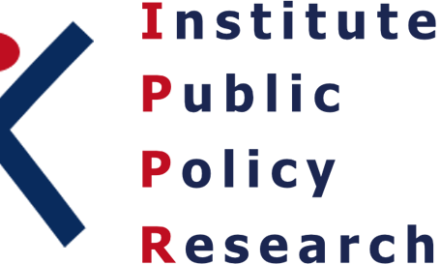
Inside track on operational changes at Statistics Agency
Dr John SteytlerFew people can claim not to know economist Dr John Steytler, yet he became an economist by accident as he initially enrolled for a social science degree at UNAM. This week the Economist sub-editor Nyasha Francis Nyaungwa spoke to Dr John Steytler about his work at the Namibia Statistics Agency (NSA), his vision for the agency, and how he hopes to transform the collection and use of data in Namibia. The country’s first Statistician General also spoke about the challenges facing the NSA. Below is an excerpt of that interview.
Why Economics?
It was really accidental. I started working on developmental issues for the NGO community. At that stage I realised that with the tools that I had as a social scientist, I didn’t understand enough. I was then fortunate to get a scholarship to study economics in Germany and the rest is history.
What is really worrying to me is this growing divide between the haves and the have nots. The income divide is just not sustainable and often many young professionals chase income. I think that is a narrow view and at some point it will not be sustainable.
It is in the interest of young professionals to have a long term view about developmental issues; of course you can chase money in the private sector, get good bonuses , but in the end we live in a society with huge challenges. For me the biggest challenge is really not unemployment, but slow economic growth; the biggest challenge for me is that the gap between the rich and the poor is so big and from a socio -justice perspective, I don’t think it is fair.
If we take a little more from the rich and put it through different redistributive policies towards projects and activities that will enable people that are less well-off to become part of the mainstream economy, I think that will create a base that is bigger and more sustainable for economic growth.
How should this be done?
I think it is still through two key channels. The first is through quality education. Our education system, the way it is now, although it is accessible at primary level,.. the reality is that quality matters. and if you want to have a decent education you still have to fork out a lot of money.
I think we should strive not only for access to education, but towards giving every Namibian a good quality education that is comparable to the rest of the world. For me that will mean that we have to put even more money in education, not less.
The second one is housing and sanitation. I think housing has the ability to transform lives of many people; it can create a lot of wealth for families . If you have proper housing amenities – water and electricity – it will just put you on a level where you as a kid can be a better student, you can be a healthier person.
Given the disparities in Namibia, I don’t think a market approach alone can solve the housing problem. I am afraid that some of the interventions are still too much market based, we don’t feel comfortable to give people a free ride. To some extent we will have to go to the public housing and say that some people just cannot afford housing and so we will provide the houses for them. And maybe one could look at the terms of providing that house so that it is not entirely free, but there must be a strong public component in the housing programme.
How has been your journey so far at the NSA?
Its been very rewarding, very challenging, lots of hardwork and not a lot of sleep, but I have got a lot of support from the line ministry, the director general, the board and the staff members. I have realised that people in Namibia want to succeed, they really want to contribute towards making things work so I get a lot of support from the former CDF staff. People have been extremely helpful, the media also. I must say if you look at the coverage that we get in the media, I am really thankful to the media, they cover our events, they cover our stories; they have actually become a key partner in disseminating information, its been nice so far.
A lot of people admire the work you are doing at the NSA so far; what is your secret formula?
I don’t have a clear answer. I think we just tried to have a proper work plan. We started off with planning. If you look at the beginning, the first six months or so, the focus was on planning.
There was a deliberate focus on governance, to say we need to get our house in order, we should be accountable.
Do you think you have done enough to improve the quality of statistics in the country?
It’s far far from where we want it to be. We still have a weak statistical system. We are still grossly underfunded, we are not able to retain talent, and we still don’t have all the skills that we need to collect statistics as we should. We are now classified as an upper middle income country, so what that means in terms of statistical systems, we should be able to produce almost real time statistics, but our statistics still focuses on what happened one month ago or three months ago; on income and expenditure patterns, five years ago.
To update our statistical data is very costly and we have been underfunded. We should be able to collect, for example, labour force statistics on a quarterly basis or even on a monthly basis. If we say that unemployment is the number one challenge, why do we spend so little money on understanding the unemployment problem? Why do we only want to look at unemployment every four years? Fine, Cabinet has now authorised us to do it on an annual basis, but I think to have a proper understanding of the labour market, we need more high frequent data, but unfortunately this data costs money. Our income data is important for various purposes; we need household income to update our national accounts, we need household income for monetary policy purposes, for compilation of consumer prices indices, but we collect income data on a five year basis. And again it is because the income survey is so expensive, but we have to ask the question; “what is the cost of not having the statistics?” We have squandered so much money because there was no proper evidence, but if we had spent a few million to collect a proper base line, we would have probably formulated different policies that are more effective. So I think we really need to look into that issue of the cost of not having statistics. Right now we are worried about the scope of our coverage. It maybe that some sectors are totally under reported. It has happened in some countries like Ghana and Nigeria where after they rebased the national accounts, it turned out that the economy was twice the size people thought it was. In the case of Namibia, I don’t think it will be double, but I think there is some under reporting of economic activities. The only sector that I am happy with more or less is the mining sector, because we know all the mines. Other sectors like agriculture, on the commercial side, we have good coverage, but on the subsistence side, there is weak coverage. The fishing sector, there are some issues there. It shouldn’t be difficult to cover, but I am not happy with the coverage. Where we really struggle a lot is in construction, tourism, manufacturing, and wholesale and retail.












































